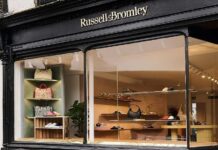A significant number of consumers in the United States will forsake brands if retail prices increase, with nearly 75% stating they would opt for less expensive generic options, according to a recent report. This shift occurs even though 68% of brand and retail executives expect customer backlash and 73% of consumers express discontent over price hikes. Nevertheless, 83% of these executives still intend to raise prices. Interestingly, almost 80% of consumers indicate they would be more loyal to brands that absorb costs related to tariffs instead, as outlined in a report named ‘Tariffs & Trust: Why Retailers Risk Loyalty with Price Hikes Study’ by First Insight.
However, First Insight points out that customer trust and loyalty aren’t solely dependent on brands’ and retailers’ capacity to maintain pricing amidst market pressures beyond their control. To foster customer loyalty while managing factors that jeopardize their profit margins, 77% of executives surveyed have proactively informed customers about impending price increases. For those retailers and brands planning to implement widespread price hikes, First Insight advises them to engage directly with customers to understand what they would be willing to pay and what pricing would deter them from purchasing across various categories. The insights gained can lead to more refined pricing strategies.
The majority of shoppers believe that any price increase is excessive, with 30% stating that even a minor increase would alter their spending behaviors. Many consumers are doubtful about the intentions of brands—only 24% fully trust that tariffs are the sole cause of rising prices. Nevertheless, 54% of consumers acknowledge that government policies, not brands, are the main drivers of cost increases.
Retailers that increase prices can still cultivate consumer loyalty by adopting the right measures. The two primary actions shoppers desire are transparent communication regarding the reasons for price increases and substantial initiatives to mitigate the impact, like loyalty points or discounts. Notably, 79% of consumers assert they would remain most faithful to brands that entirely absorb price increases rather than passing them onto customers.
According to 92% of executives, holiday shopping will differ this year. Almost every executive anticipates shifts in holiday shopping patterns, with only 8% not expecting noticeable changes. Among those expecting challenges, their top three concerns are: decreased consumer spending (56%), shipping and logistics issues (53%), and product shortages (40%), as reported by First Insight in a press release.
This holiday season, consumers will prioritize value. They anticipate that tariffs will affect their shopping behaviors in three main ways: greater use of coupons and promotions (50%), reduced overall spending (49%), and purchasing items based on price rather than brand (44%).
Certain retail categories will face more significant impacts than others. Shoppers identified the following three categories as those they would be inclined to cut back on first due to price increases: electronics/tech (50%), apparel/fashion (53%), and home goods/furniture (54%).
“We can hear shoppers’ voices loud and clear, and now is the time for retail executives to put what they’re saying to work,” stated Greg Petro, CEO of First Insight. “While most retailers won’t be able to avoid raising prices altogether, unilateral price increases are a sure-fire way to lose customer confidence and trust. There are more informed ways of approaching pricing strategies and offsetting the burden on customers.”

































